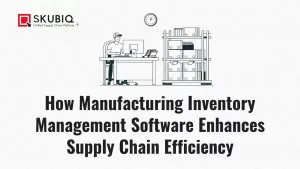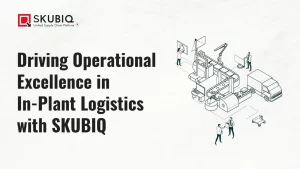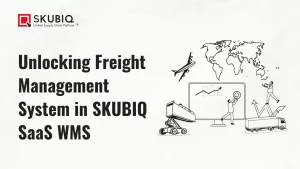The retail industry is constantly evolving, driven by changing consumer behaviors and technological advancements. One of the most significant shifts in recent years has been the move towards omnichannel fulfillment. Omnichannel strategies integrate various sales channels, including brick-and-mortar stores, e-commerce websites, mobile apps, and social media platforms, to provide a seamless shopping experience for customers.
Retail Industry Trends
1. Integration of Third-Party Logistics (3PL)
Third-party logistics (3PL) providers have become indispensable partners for retailers looking to streamline their supply chain operations. By outsourcing warehousing, transportation, and fulfillment tasks to 3PL companies, retailers can focus on core business activities while benefiting from the expertise and resources of specialized logistics providers.
2. Adoption of Advanced Order Management Systems
In today’s fast-paced retail environment, efficient order processing is crucial for meeting customer expectations. Order management systems (OMS) play a vital role in orchestrating orders from various channels, optimizing inventory allocation, and coordinating fulfillment activities. Retailers are increasingly investing in advanced OMS solutions to improve order accuracy and speed up delivery times.
Streamlining Order Processing
OMS solutions offer retailers the ability to seamlessly manage orders from various channels, including online stores, brick-and-mortar locations, and mobile apps. By centralizing order processing, retailers can eliminate manual errors, reduce order processing times, and improve overall efficiency.
Optimizing Inventory Allocation
An essential feature of OMS is its capability to optimize inventory allocation across multiple channels. By synchronizing inventory data in real-time, retailers can ensure that stock levels are accurate and up-to-date. This allows for better decision-making regarding inventory replenishment, reducing the risk of stockouts or overstock situations.
Coordinating Fulfillment Activities
OMS solutions enable retailers to coordinate fulfillment activities seamlessly, from order confirmation to delivery. By automating order routing and fulfillment processes, retailers can minimize fulfillment times and improve order accuracy. This ensures that orders are delivered to customers in a timely manner, enhancing their overall shopping experience.
3. Embrace of Warehouse Management Systems
Effective warehouse management systems (WMS) are essential for optimizing inventory control, maximizing storage space, and improving order picking accuracy in fulfillment centers. With the growing complexity of omnichannel operations, retailers are turning to WMS solutions equipped with advanced features such as real-time inventory tracking, automated replenishment, and intelligent routing algorithms.
4. Focus on Seamless Omnichannel Experiences
Today’s consumers expect a seamless shopping experience across all touchpoints, whether they are browsing products online, visiting a physical store, or interacting with a brand on social media. Retailers are investing in omnichannel technologies and strategies to provide consistent messaging, personalized recommendations, and flexible fulfillment options to customers.
5. Integration of Digital and Physical Retail Channels
The line between online and offline retail continues to blur as retailers seek to create cohesive shopping experiences that bridge the digital and physical worlds. Technologies such as augmented reality (AR), virtual reality (VR), and smart mirrors are being deployed in-store to enhance product discovery, enable virtual try-on experiences, and facilitate interactive shopping journeys.
6. Expansion of Fulfillment Options
To meet the growing demand for convenience and flexibility, retailers are expanding their fulfillment options beyond traditional delivery and in-store pickup. Buy online, pick up in-store (BOPIS), curbside pickup, and same-day delivery services are gaining popularity, allowing customers to choose the most convenient way to receive their orders.
7. Emphasis on Sustainability and Eco-Friendly Practices
With increasing awareness of environmental issues, consumers are prioritizing sustainability when making purchasing decisions. Retailers are responding by adopting eco-friendly packaging materials, implementing energy-efficient technologies in warehouses and transportation fleets, and exploring green logistics solutions to minimize their carbon footprint.
8. Leveraging Data Analytics for Insights
Data-driven decision-making has become a cornerstone of successful retail operations. By leveraging big data analytics and predictive modeling, retailers can gain valuable insights into consumer preferences, market trends, and supply chain performance. This enables them to optimize inventory levels, tailor marketing campaigns, and improve overall business efficiency.
Conclusion
As the retail landscape continues to evolve, omnichannel fulfillment will remain a key focus for retailers seeking to stay competitive in a rapidly changing market. By embracing the latest industry trends and leveraging advanced technologies, retailers can create seamless shopping experiences that delight customers and drive long-term success. From 3PL logistics partnerships to omnichannel strategies and sustainable practices, the future of retail fulfillment is full of exciting possibilities.



